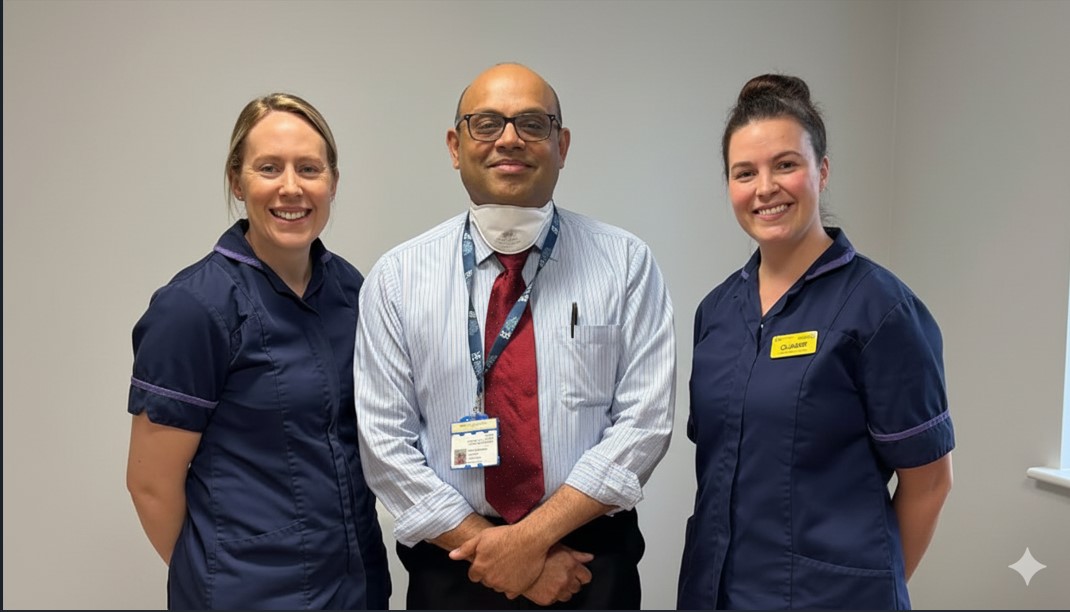
Wrightington, Wigan and Leigh Teaching Hospitals NHS Foundation Trust (WWL) has become the first hospital to recruit a participant in a global research study.
Professor Nirmal Kumar, Principal Investigator (PI) and his team at The Royal Albert Edward Infirmary (RAEI) achieved the milestone for a study on a new treatment for chronic rhinosinusitis (CRS) with nasal polyps. CRS is a condition that causes inflammation of the nasal passages and sinuses, lasting 12 weeks or longer.
The National Institute for Health and Care Research (NIHR)
Prof. Kumar said: “We have found here at Wigan that some patients have had numerous surgeries in the past for recurrent nasal polyps and are interested in trying new innovative drugs that may help reduce and control their CRS symptoms and reduce the size of their nasal polyps without the need for invasive surgery. By joining this study, the Wigan research team hopes to give patients access to innovative therapy which could potentially improve their quality of life and reduce the need for repeat operations as many local patients have had multiple surgeries and are eager for new treatment options.”
The study is a large international phase 3 trial where participants are randomly assigned to receive either the treatment or a placebo, and neither they nor the researchers know which one they’re getting. The trial is sponsored by a pharmaceutical company based in the UK that checks if the drug is safe and effective for adults with CRS and nasal polyps who haven't responded to other treatments.
This long-term condition can cause blocked sinuses, nasal congestion, and loss of smell. Many patients require repeated surgeries to remove nasal polyps, which often recur. This study aims to see if the drug that is tested can reduce these symptoms and polyp size. This will then help patients avoid further surgery.
The Royal Albert Edward Infirmary research team has taken part in several studies on treatments for CRS. The trials have helped show how new treatments might better control symptoms and reduce polyp recurrence. Polyp recurrence happens in up to 40% of patients within 18 months of surgery.
Strong teamwork was key to this success with Prof. Kumar, Dr Aravind Madhwacharya, Sub-Investigator (Sub-I), and the wider research team working closely to identify eligible patients early.
Prof. Kumar and Dr Madhwacharya reviewed their clinic lists before the study opened so that they could engage with potential participants right away. The team also stays in touch with people who participated in previous studies. This meant they could ask previous participants if they wanted to hear about future research opportunities. This proactive approach allowed them to find a suitable participant quickly.
Research Nurse, Claire Williams, said: “Early notification from the NIHR that the sponsor was looking for sites was very important, enabling us to do a thorough feasibility check to determine if we could successfully recruit to this study at our site. Good communications between the NIHR and our R&D department during set-up were also crucial.”
With a set-up time of 24 days, the Wigan team also comfortably met the government's 150-day target for study set-up. Their past work with the same commercial partners, then set up the study quickly which helped to start recruitment right away.